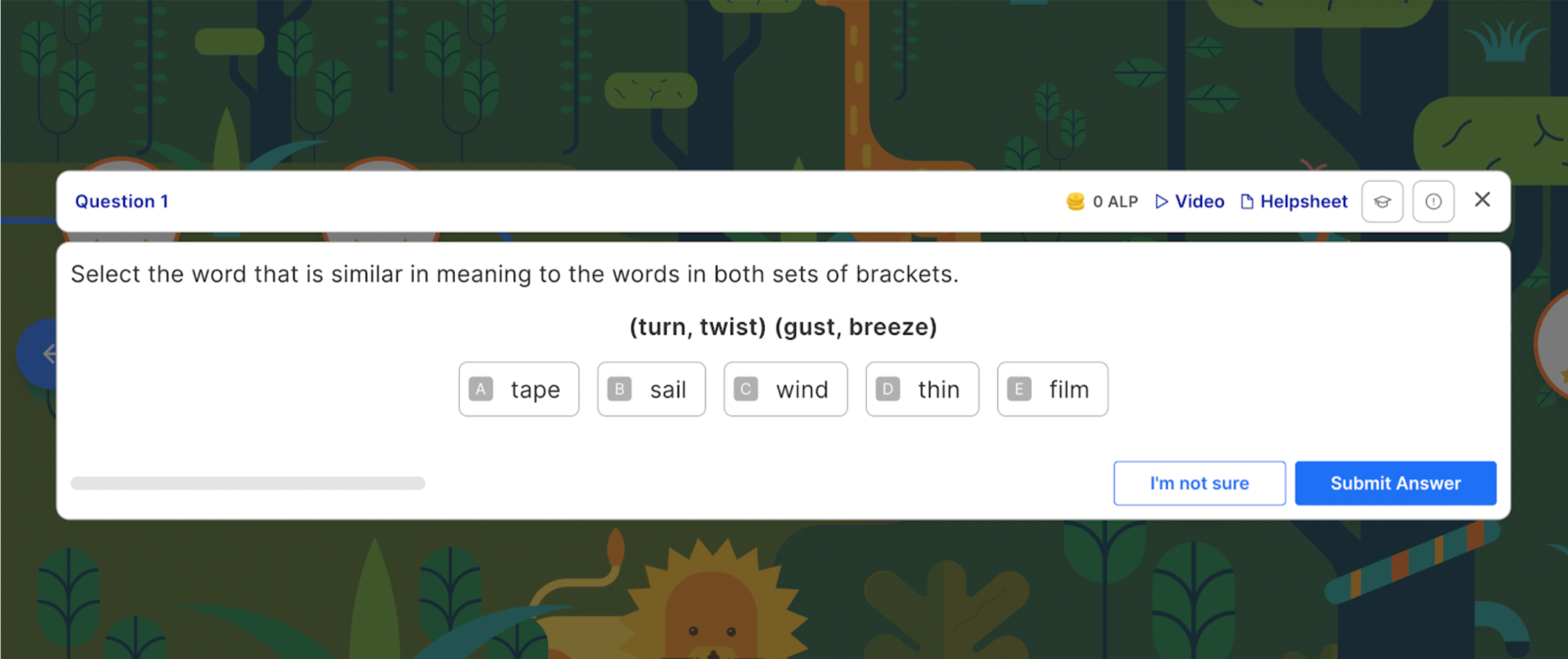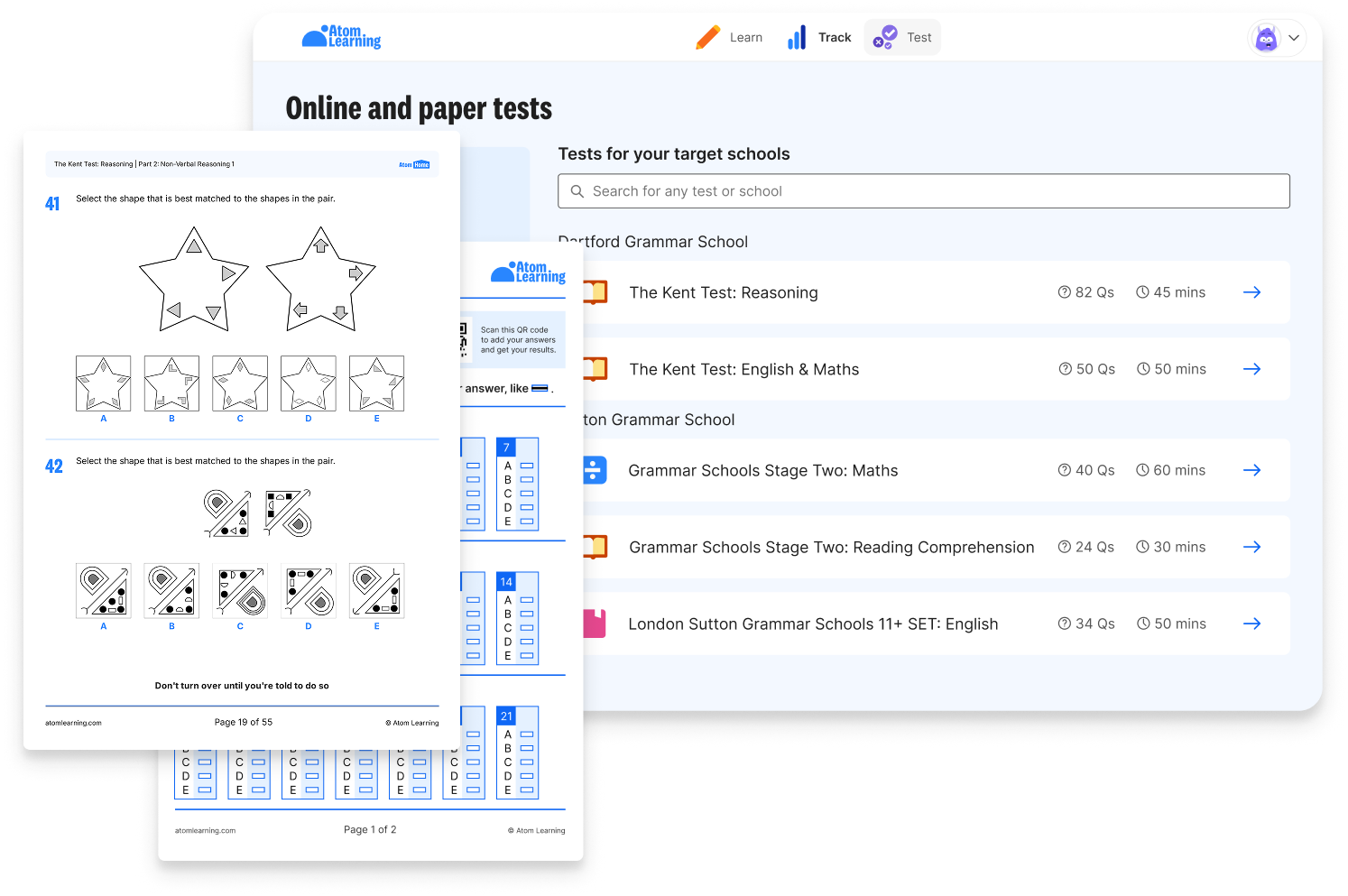Introducing your child to verbal reasoning

Most 11 plus exams (including GL Assessment and ISEB) test verbal reasoning, either in a specific paper or alongside English questions. Whether or not you're planning to send them to a selective school, your child will benefit from being introduced to verbal reasoning skills early. Here are some everyday ways to boost their vocabulary, comprehension and logic to set them up for success in their education!
What are verbal reasoning skills?
Verbal reasoning is a test of skill rather than knowledge. It isn't taught as part of the national curriculum – instead, it aims to measure how well someone can think, communicate and solve problems using words. It involves key skills such as:
- Reading comprehension
- Strong vocabulary
- Phonological awareness
- Problem-solving
- Identifying sequences
Why are verbal reasoning skills important?
We rely on verbal reasoning in daily life just as much as we rely on it in the classroom. Verbal reasoning helps us make sense of what we read and hear. The skills allow us to understand and communicate complex information, make connections, predict outcomes and reach conclusions based on evidence.
Your child will already have some ingrained ability for verbal reasoning. Humans begin to develop cognitive skills, like logic and the ability to identify connections, between the ages of two and three. The frequent 'why?' questions can be tiresome for parents but they mean that your child is learning to process information!
In the 11 plus exam, verbal reasoning tests children's potential for critical thinking. It is also an attempt to measure general intelligence – the basis of all selective school entry tests.
What's the difference between verbal and non-verbal reasoning?
- Verbal reasoning is the ability to understand and engage with language, i.e. any written and spoken information (including numbers!).
- Non-verbal reasoning is the ability to understand and engage with visual information, including shapes, diagrams, graphs, maps and pictures.
Both verbal and non-verbal reasoning need attention to detail, as well as the ability to solve problems and apply logic.
Free parent webinar
It's important to introduce your child to reasoning at the right level. In this webinar, Chloe explains how. She also covers how to develop a growth mindset to keep them motivated as they explore these new challenges!
Encourage reading
As verbal reasoning involves words, being able to read and process written information is essential. If your child isn't much of a reader yet, take a look at our ways to engage your child with reading as a starting point.
Once they are reading regularly, encourage your child to read widely. This means reading fiction and non-fiction across plenty of genres, and by authors with different writing styles. Spotting the nuances in writing will help your child improve their comprehension skills, expand their vocabulary and gain more general knowledge.
If you're looking for some new reading material for your child, here are our top picks!
Build a strong vocabulary
Did you know that children learn over 1,000 new words each year?
Verbal reasoning tests will often ask children to spot the odd one out in a group of words or identify homophones (words that have a similar meaning).
In the example below, the two words in each set of brackets are similar to one word in the answers. Children need to select the correct word from the multiple-choice options.

Make learning new words fun with word games such as Scrabble and Bananagrams. If your child prefers to play alone, crosswords and word searches are also great ways to build their vocabulary.
Boost phonological awareness
Phonological awareness means being able to understand the sound structure of words. One of the common question types that comes up on 11 plus verbal reasoning exams is choosing singular words that, when combined, create a new word.
Work with your child on developing phonological awareness by playing rhyming games (e.g. "Can you guess what I'm wearing? It rhymes with cat.") and writing poems or even songs together.
Get cracking on codes
Verbal reasoning tests will almost always require children to solve a code. This might be cracking letter codes, number-based codes or unscrambling an anagram.
Applying logic is key to answering these types of questions. Your child can practise solving word problems with fun code-breaking puzzles online. They can also improve their numerical reasoning with sudoku.
Develop sequence logic
It might sound simple, but knowing the English alphabet back to front will help children answer verbal reasoning questions confidently.
Sequences using letters are common types of questions in a verbal reasoning test. Test your child on their alphabet knowledge by asking them to recite it from a random letter (e.g. start with J, rather than A). Go one step further and ask them to recite it backwards from Z to A.
Take control of your child’s 11+ preparation.

Not sure if your child is on track for the grammar school 11+? You don’t need to guess what to cover or whether they’re ready. Atom shows you exactly what to practise each week and how they’re performing, so you can stay ahead of the process without the stress.
- Follow personalised weekly exam plans that show them what to learn next.
- Download replica 11+ practice papers and upload a photo for instant, stress-free marking.
- Track progress and see how they compare to others applying to the same schools.
Start your free trial and help your child feel fully prepared for the 11+.
